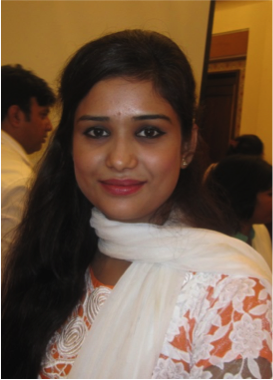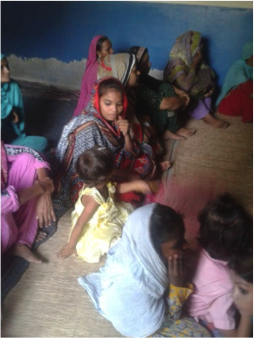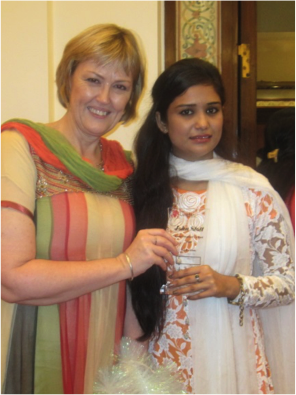Christina Noor was just 20 when she heard the voice of God in her sleep, calling her to serve the children of Pakistan by ministering in unreached villages.

Christina Noor
She immediately began her ministry, developing a Sunday school programme that has now become the Winning Souls Kids Ministry.
Her passion for leading children has not been dimmed by the dangers of working in Muslim villages. “I have seen people burned to death in their car just for being Christians,” she says sadly.
Now aged 27, Christina has become the inaugural winner of the John Stott Young Preacher’s Award held in Lahore last month.
It’s a remarkable achievement given that her main focus has been working with children, and she has not had much opportunity to preach in a more general context.
Young women took three of the top four positions in the award, held by Langham Partnership, in celebration of ten years of working in Pakistan. Langham works with national leaders in 70-plus countries to train and equip pastors and lay preachers in expositional preaching from the Bible.
 Born in the agricultural district of Kasul, bordering India, Christina was familiar with religious tension and strife from a young age. However, encouraged by her family, she pursued her Christian studies through courses she accessed online – and in doing so she developed considerable fluency in English.
Born in the agricultural district of Kasul, bordering India, Christina was familiar with religious tension and strife from a young age. However, encouraged by her family, she pursued her Christian studies through courses she accessed online – and in doing so she developed considerable fluency in English.
She is now studying for her Masters in Theology through the Open Theological Seminary in Lahore, and has completed level two of the three-level Langham Preaching Programme.
“Christina is an outstanding representative of a new generation of young Pakistani Christians, filled with courage and determination to preach the word of God faithfully, clearly and relevantly to all who need to hear it,” says Gillean Smiley, chief executive of Langham Partnership Australia, who heard Christina’s sermon.
“Even without understanding her message from Job 1, delivered in Urdu, Christina’s passion, focus on the text – to which she constantly referred – and connection with her audience was apparent.”
Afterwards, Gillean asked Christina why she felt women had been so successful in the competition.
“It is not always as easy for the women to study and to preach, so perhaps those who do need to be more dedicated and committed to their work”, Christina suggested.

Christina (right) and Gillian from Langham Partnership.
Qaiser Julius, director of the Open Theological Seminary (OTS), comments: “It is very difficult for many women in Pakistan to study and work outside the home, but we have seen a real shift as Christian husbands, fathers and brothers are beginning to support their womenfolk to do this. In fact, 53 per cent of theological students studying through OTS are now women.”
Qaiser has recently completed his PhD thesis as a Langham Scholar, studying at Melbourne School of Theology. After his graduation in November, Qaiser and his young family will return to Lahore, where he will again take up full-time leadership of the seminary, along with actively promoting the Langham Preaching Programme.
While Christian men are changing in the way they treat women in the church, prejudice against women in still rife in Pakistan society, which is very hierarchical and status conscious. The woman who came equal third in the contest experienced discrimination when she was invited to preach in a church at Christmas time.
“An elder stood, interrupted her and told her it was not her place to speak. She was reduced to tears, and now speaks only to women’s groups,” says Gillean.
As the only woman in the Langham leadership team, Gillean says she found it a challenge travelling with no female companion in Pakistan but she felt it was important to visit to show her love and support for Pakistani Christians.
“Sadly, there was some surprise that I was ‘brave enough’ to go. Some Pakistani Christians have experienced others choosing not to go to visit, out of concerns for safety. I needed to show that we stand with them as much as we are able to,” she says.
“It was very important for me to go and learn from the experience of a preaching training event, and hear the stories of the participants first hand. Part of my job is sharing the deep needs experienced throughout the Majority World, and the mission of Langham, with the church in Australia. To do that effectively, I need to understand as well as I can what is needed, what we are doing in response, and what yet needs to be done.”
Email This Story
Why not send this to a friend?
